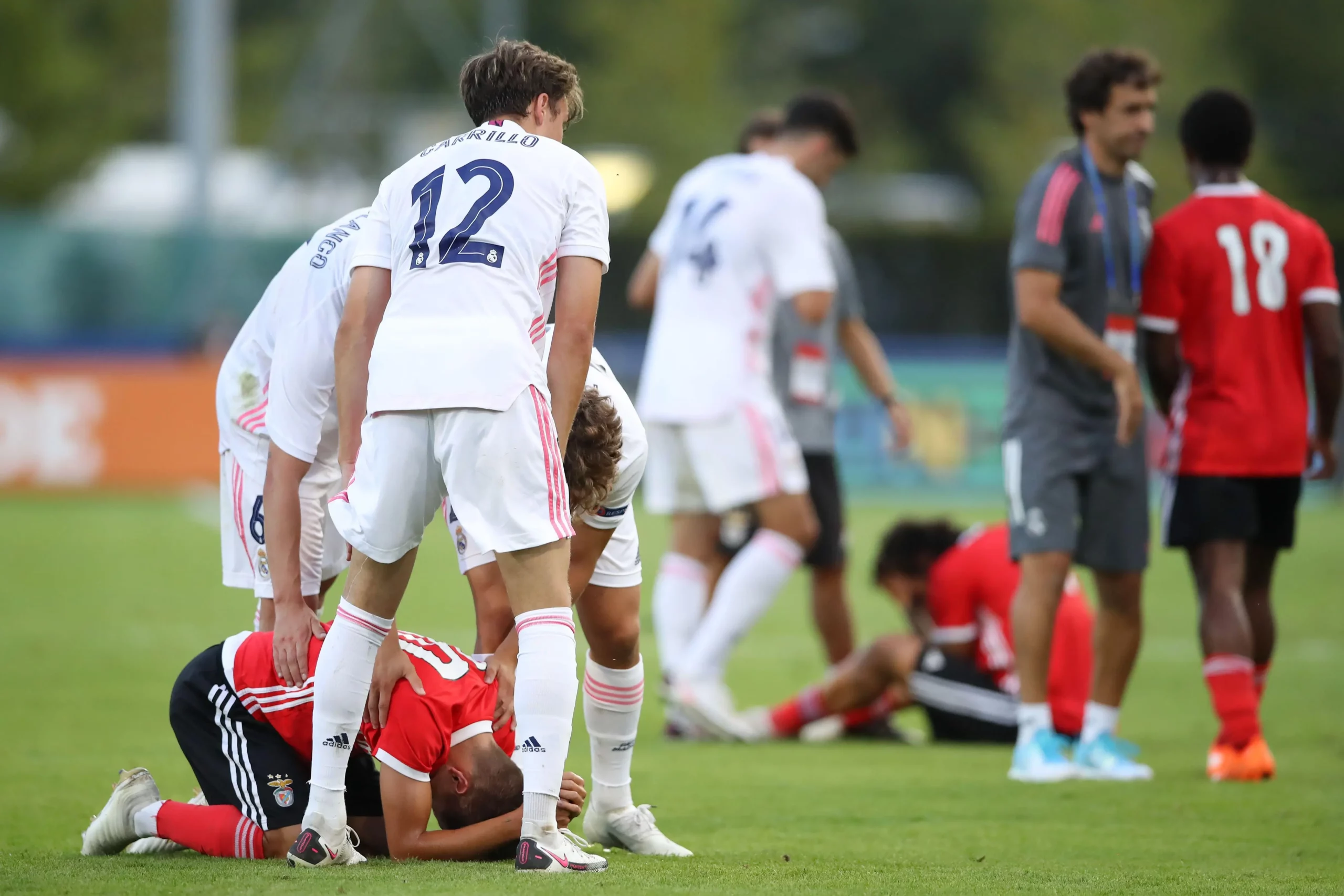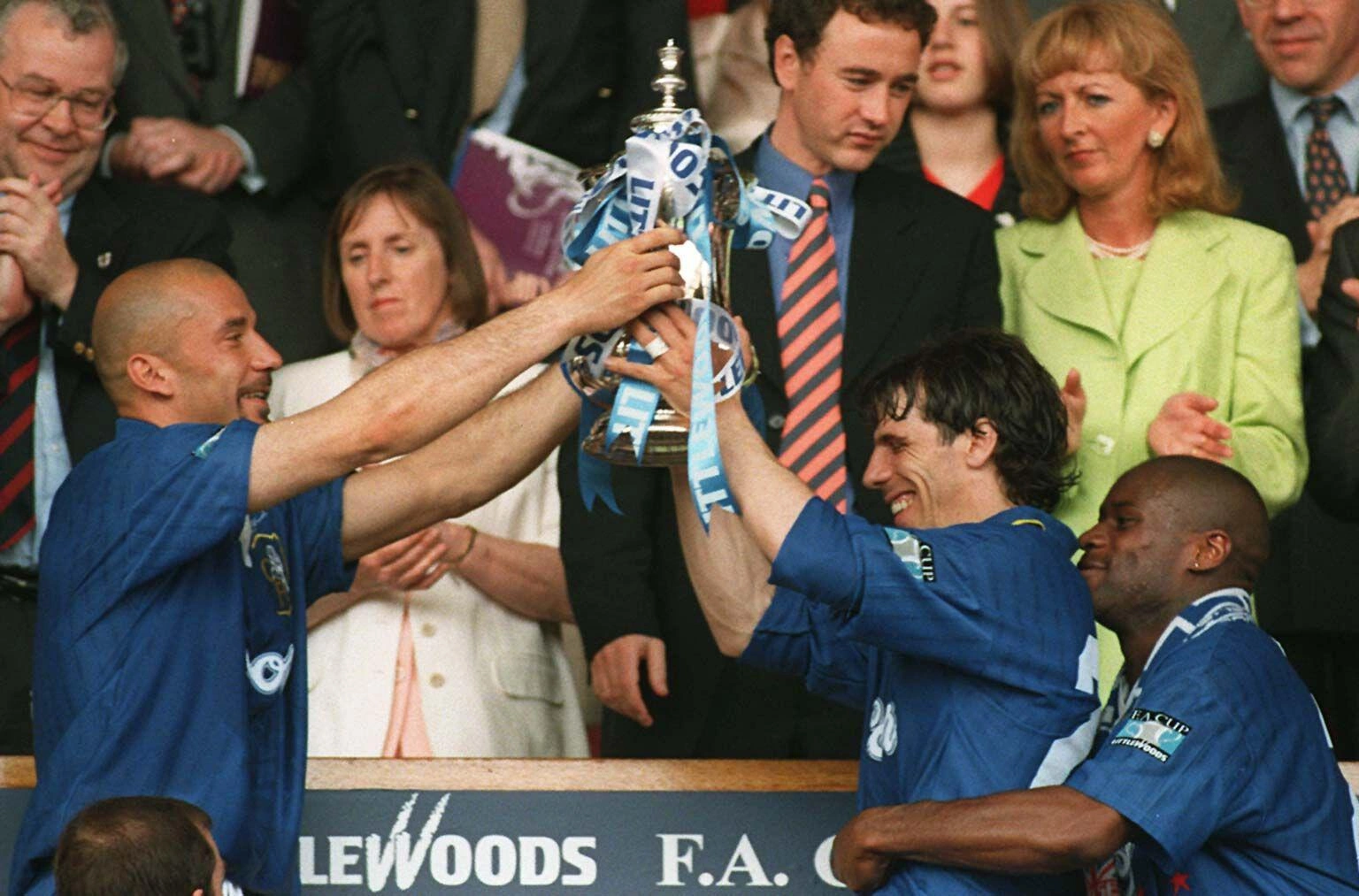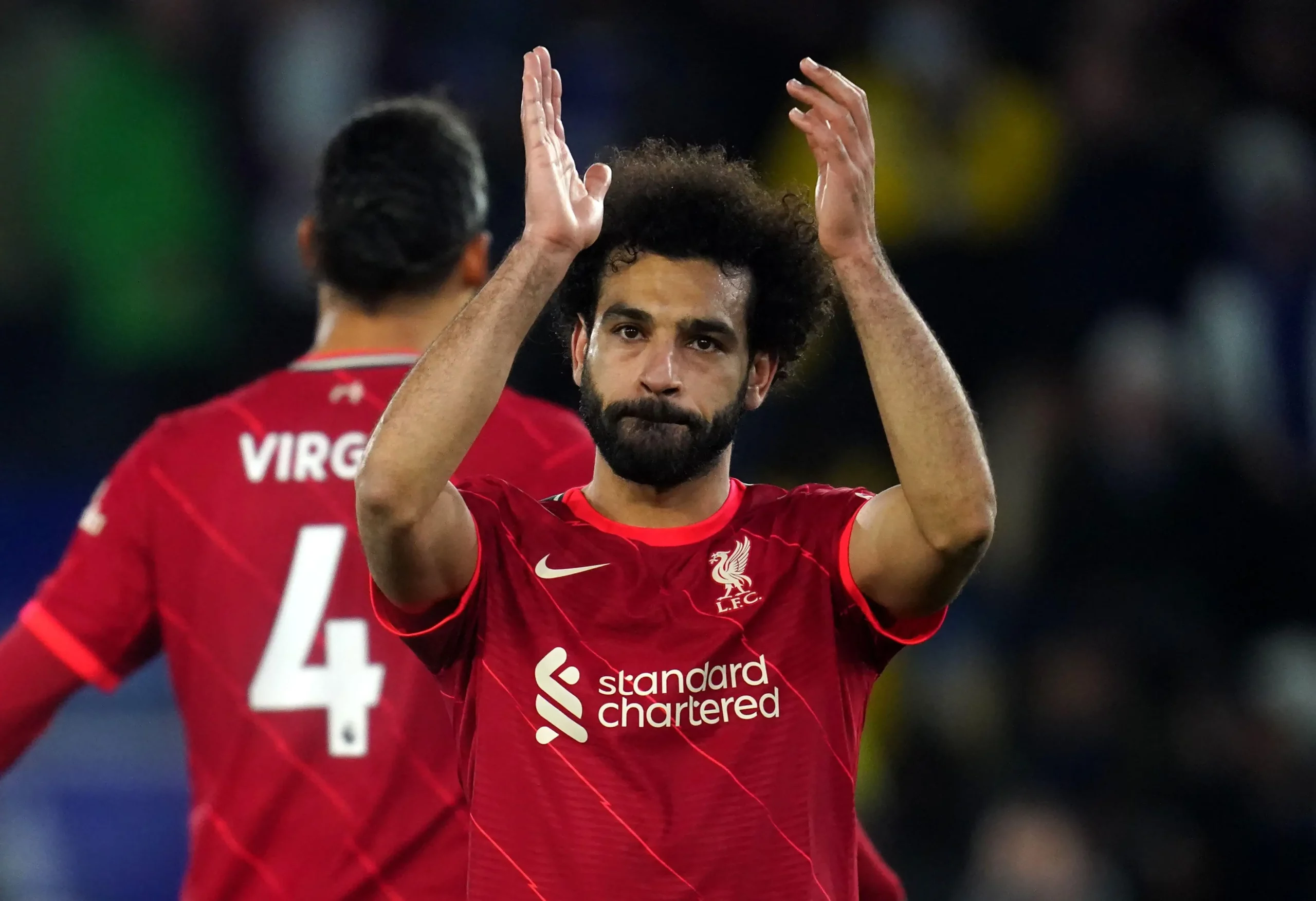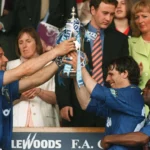Football’s rich tapestry is woven with tales of triumph and despair, but few narratives captivate supporters more than the enduring legends of curses. These stories, rooted in folklore, superstition, and inexplicable misfortune, have shaped the identities of clubs and nations, leaving fans to wonder whether fate itself conspires against their teams.
Most clubs would rather avoid being tied with these superstitions, and some of them were even able to break it, looking at you Harry Kane. Nevertheless, here are a few famous football curses that are yet to be lifted and are still plaguing football clubs and fans around the world.
Benfica’s Century-Long European Curse
Benfica’s struggles in European competition since 1962 remain one of football’s most enduring mysteries. The curse traces back to Béla Guttmann, the Hungarian manager who led the club to back-to-back European Cup victories in 1961 and 1962. After a pay dispute with Benfica’s board, Guttmann allegedly declared, “Not in a hundred years from now will Benfica ever be European champion again”. His words proved prophetic. The Portuguese giants have since lost eight European finals, including five European Cup/Champions League deciders and three UEFA Cup/Europa League showdowns.
Notable near-misses include the 1983 European Cup final against AC Milan, where a 1-0 defeat extended the curse, and the 2013–14 Europa League final defeat to Sevilla. Despite domestic dominance, 38 Primeira Liga titles to be exact, the club’s European drought persists. Fans have resorted to symbolic gestures, such as releasing eagles before matches, but the shadow of Guttmann’s prophecy looms large.
The FIFA World Cup Winner’s Curse
Since 2002, reigning World Cup champions have faced a baffling pattern of early exits in subsequent tournaments. France’s 2002 campaign marked the curse’s inception. The defending champions crashed out in the group stage without scoring a single goal, humbled by debutants Senegal.
Italy followed suit in 2010, failing to advance from a group featuring Paraguay and New Zealand. Spain’s 2014 title defence ended with a 5-1 thrashing by the Netherlands, while Germany’s 2018 exit, marked by a loss to South Korea, sealed their worst World Cup finish.
France, winners in 2018, narrowly avoided the curse in 2022 by reaching the final but fell to Argentina on penalties. This trend has sparked debates about complacency, tactical stagnation, and the psychological weight of defending the title. Whether the curse reflects systemic issues or mere coincidence remains unresolved, but its grip on recent champions is undeniable.
Bayer Leverkusen’s ‘Neverkusen’ Moniker
Bayer Leverkusen’s reputation for agonising near-misses earned them the nickname “Neverkusen” in the late 1990s and early 2000s. The club finished Bundesliga runners-up five times (1997, 1999, 2000, 2002, 2011), but the 2001–02 season epitomised their plight.
Leading the league by five points with three games remaining, Leverkusen collapsed, conceding the title to Borussia Dortmund. Days later, they lost the DFB-Pokal final 4-2 to Schalke and fell 2-1 to Real Madrid in the Champions League final, a “treble of despair” that cemented their cursed status.
Decades of underachievement followed until Xabi Alonso’s appointment in 2022, one of the best young football managers at the moment, revitalised the club. Leverkusen’s 2023–24 Bundesliga title, their first, and German Cup double hinted at a curse lifted, though sceptics await sustained success. Even though the title won last year signifies them breaking the curse, not continuing in the same manner might mean that they are up for another trophy-less run, especially if Xavi Alonso decides to leave for Real at the end of the season.
England’s International Trophy Drought
England’s 1966 World Cup victory remains a solitary peak in an otherwise barren international landscape. Despite producing generations of elite talent, from the likes of Bobby Charlton to Harry Kane, the Three Lions have faltered in the knockout stages for over half a century. The 1990 World Cup semi-final loss to West Germany and the 1996 Euro semi-final defeat to Germany (both on penalties) became emblematic of their mental fragility.
Euro 2020 offered hope, where England reached their first major final since 1966 but succumbed to Italy in a penalty shootout at Wembley. Manager Gareth Southgate’s emphasis on youth development and cultural reset has renewed optimism, which gave England another crack at becoming European champions in 2024. Alas, Mikel Oyarzabal made sure that the curse stuck as he scored the winning goal for Spain in the 86th minute of the match, single-handedly continuing the curse and ending Southgate’s tenure as England’s coach.
Paris Saint-Germain’s Champions League Hoodoo
Paris Saint-Germain’s quest for European glory has been marked by heartbreak and repeated setbacks, despite dominating French football for over a decade and investing heavily in star players. Since the Qatari takeover in 2011, PSG have spent close to €1.5 billion on signings, including world-record deals for Neymar and Kylian Mbappé, yet the Champions League trophy has remained elusive. Their most painful defeats have become part of modern football folklore.
The 2016–17 season saw PSG surrender a 4-0 first-leg advantage to Barcelona, collapsing 6-1 at the Camp Nou in what is now known as the “Remontada” a result that left lasting psychological scars and is widely regarded as one of the most dramatic turnarounds in European history.
This trauma was followed by further disappointments. In 2019, a late Manchester United penalty knocked them out in Paris after a 2-0 win at Old Trafford, and in 2022, PSG threw away a 2-0 aggregate lead against Real Madrid, conceding three goals in 17 minutes.
The closest PSG have come to breaking the curse was in 2020, when they got to the final only to lose 1-0 to Bayern, Kingsley Coman scoring the only goal of the game. Since then, they have continued to fall short, exiting in the round of 16 or quarter-finals despite high expectations and a star-studded line-up.
Birmingham City’s Gypsy Curse
Birmingham City’s St. Andrew’s stadium, built on land once occupied by Romani Gypsies, became the focal point of a century-long curse. After relegation in 1906, the season following the curse’s alleged casting, the club endured decades of mediocrity. The main stand’s destruction during World War II and financial crises in the 1980s deepened the gloom.
Managerial attempts to break the curse included Ron Saunders placing crucifixes on floodlights and Barry Fry urinating on the stadium’s corners. The curse’s purported end in 2006 preceded Birmingham’s 2011 League Cup triumph, a 2-1 upset over Arsenal, though relegation battles since suggest residual hex effects.
Birmingham will be getting back to the Championship next season after a record-breaking season where they topped League One with 111 points. Hopefully for them, this might bring an end to their despair.
Racing Club’s Dead Cats Curse
In 1967, Racing Club’s rivals Independiente buried seven dead cats at their stadium to cast a curse. The ritual coincided with Racing’s decline, a relegation in 1983, bankruptcy, and a 35-year trophy drought. Six cats were exhumed by fans in the 1990s, but the seventh remained hidden until 2001. After its discovery, a priest performed an exorcism, and Racing won the Apertura title that year, their first since 1966.
The curse’s lifting revitalised the club, but its legacy lingers in Argentine football folklore as a cautionary tale about rivalry and superstition.
Australia’s Witch Doctor Hex
Australia’s 1970 World Cup qualifying campaign took a surreal turn when players enlisted a witch doctor to curse opponents Zimbabwe (then Rhodesia). The ritual backfired when the unpaid doctor reversed the spell, leading to a playoff loss to Israel. Subsequent failures, including a goalless 1974 World Cup, cemented the curse’s reputation.
Comedian John Safran attempted to break the hex in 2004, staging a ritual in Mozambique. The Socceroos qualified for the 2006 World Cup, reaching the knockout stage, but the curse’s residual effects linger in Australia’s intermittent tournament absences.
Tottenham Hotspur’s Title Drought
Tottenham’s last league title in 1961 predates the Premier League era, and their near misses since have fueled accusations of a curse. The 2015–16 season saw them finish third in a two-horse race with Leicester City, while the 2019 Champions League final loss to Liverpool extended their wait for major silverware.
Chairman Daniel Levy’s investment in infrastructure, including the Tottenham Hotspur Stadium, has modernised the club, but on-field success remains elusive. The drought symbolises the fine margins between ambition and achievement in modern football.
Mexico’s Round of 16 World Cup Cycle
Mexico’s consistent World Cup group-stage exits since 1994-seven consecutive Round of 16 losses-have become a national obsession. Tactical naivety, managerial instability, and psychological pressure have all been blamed. The 2014 defeat to the Netherlands, decided by a controversial penalty, epitomised their misfortune.
Things got even worse in 2022 in Qatar, where El Tri failed to qualify for the elimination stage for the first time in 28 years. Efforts to break the cycle, including appointing foreign coaches like Juan Carlos Osorio and Gerardo Martino, have yielded minimal progress.
While Mexico holds a record of qualifying for 16 World Cup tournaments out of 22, they haven’t garnered much success after they get there. For Mexican fans, the curse represents a quest for legitimacy on football’s biggest stage.















